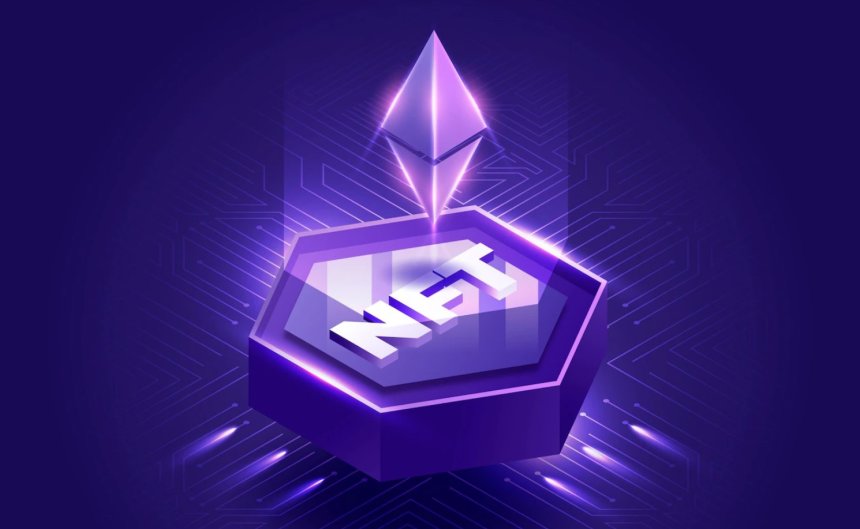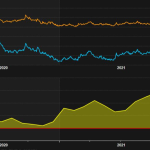Traditional loyalty programs have been a go-to strategy for businesses to reward their customers and make them come back again. These programs usually offer incentives for the buyers to purchase again, but they often suffer from being too rigid, not engaging enough, and costly to maintain. Enter Non-Fungible Tokens (NFTs) — a revolutionary technology that brings a fresh perspective to loyalty programs. NFTs let businesses design loyalty experiences that are flexible, engaging, and deeply personalized. We will explore how NFTs are set to bring key changes to loyalty programs, starting with an overview of what NFTs are and how they differ from conventional digital assets.
Understanding NFTs
Non-fungible tokens (NFTs) are unique digital assets verified by blockchain technology. Unlike cryptocurrencies like Bitcoin or Ethereum, which are interchangeable, NFTs are unique and cannot be exchanged on a one-to-one basis. Each NFT has a unique identifier and metadata, making it perfect for representing ownership of specific items or content.
Both NFTs and cryptocurrencies use blockchain technology, but they serve different purposes. Cryptocurrencies are digital currencies used for transactions and storing value, with each unit being identical and interchangeable. NFTs, however, represent ownership and authenticity of unique items. This means NFTs act more like digital certificates, proving ownership and uniqueness for both digital and physical assets.
Use cases of NFTs beyond art and collectibles
NFTs first became popular in the art and collectibles market, allowing artists to sell digital artwork with verifiable ownership. However, NFTs have many other potential uses:
- Digital Identity Verification: Ensuring secure and verifiable digital identities.
- Real Estate: Representing ownership and transfer of property.
- Gaming: Providing in-game assets that players can own, trade, and sell.
- Entertainment: Offering exclusive content or experiences to NFT holders.
- Fashion: Authenticating luxury goods and protecting them from counterfeiting.
Traditional loyalty programs
Usually, loyalty programs reward customers for supporting and buying from the same brand again and again. That’s how they normally work:
Point Systems: Each buy gives points. After accumulating a certain amount of those points, they can be exchanged for rewards. For instance, you get a sticker each time you visit your favorite café — except these points can get you more than just a free coffee.
Tiered Memberships: Here clients can move between different levels depending on engagement. The more you buy, the more discounts and bonuses you unlock. It’s like being a regular at a hotel where each visit moves you closer to VIP status.
Exclusive Discounts and Offers: Members get secret deals and offers. It’s like being part of a club where only insiders get the best deals.
Bounty Options: From free items and services to exclusive deals, there’s usually a list of rewards to choose from. Similar to having a free menu of treats where you get to pick your favorite.
Challenges and limitations of traditional loyalty programs
Despite their popularity, traditional loyalty programs are not perfect and come with a set of issues:
- Engagement: Sometimes, the rewards aren’t really exciting, or it takes too long to get them, so clients lose interest.
- Personalization: Many programs offer bonuses, that do not match your personal preferences. It’s like receiving a gift that’s nice but not quite what you wanted.
- Costs: Setting up and handling these programs can be costly and require a lot of resources. It’s like throwing a party where the snacks and drinks quickly add up.
- Privacy Concerns: With all the information companies collect for these programs, there are often doubts about privacy and security. Clients wonder who else might peek at all the given data.
How NFTs are revolutionizing loyalty programs
Unlike traditional loyalty programs, NFTs offer unique rewards, adjusted to every client. Each NFT is a special token, providing access to exclusive things like rare events, limited-edition items, or one-of-a-kind experiences. This degree of personalization makes customers feel truly appreciated, which makes them more satisfied and creates pleasant feelings related to the brand.
NFTs help to build a sense of community. Businesses can mint NFTs that serve as membership tokens, granting access to private online groups or special events. In these communities, customers can engage with the brand more closely, which feels more meaningful and exciting. Plus, the thrill of collecting unique NFTs makes loyalty programs more fun and game-like, turning them into exciting adventures.
Unlike traditional loyalty points that are often stuck in one place, NFTs can be traded or sold on various marketplaces. This flexibility adds real value to the rewards, letting customers decide whether to keep, trade, or sell their NFTs. It also opens up new avenues for businesses to attract more people through secondary markets.
NFTs are incredibly versatile and can seamlessly blend with different digital platforms, enhancing the entire loyalty experience. Whether it’s through mobile apps, social media, or virtual worlds, NFTs can be used in exciting ways — think augmented reality experiences, virtual store tours, or interactive brand stories. This integration creates a rich, cohesive experience across various digital touchpoints, making loyalty programs not just a feature, but an immersive journey that resonates with today’s tech-savvy consumers.
Case study: SwapSpace Invaders Club NFT loyalty program
The SwapSpace Invaders Club NFT Loyalty Program is created to reward users’ loyalty with NFTs. The program offers participants up to 50% cashback of the revenue share on exchanges, customizable NFT characters, and a gamified loyalty experience. SwapSpace wants to create a dynamic and rewarding environment that encourages users to continue using their platform for cryptocurrency exchanges.
The SwapSpace Invaders Club offers a variety of NFTs with distinct features:
- Genesis NFTs: Initial tokens are limited to 3999 and feature animated laser eyes. They are distributed through partner drops, social airdrops, and exchange airdrops. Genesis NFTs offer special traits, points, and benefits that make them highly coveted.
- Customizable NFTs: Inspired by the classic Space Invaders game, these NFTs come with customizable elements such as scenes, skins, and lasers. Users can personalize their Invaders to reflect their unique style using accessories from the SwapSpace store.
The program progresses through three stages:
- Genesis NFT Airdrop: Deployment of a Polygon ERC-721 contract to issue the Genesis tokens.
- Reveal & Customize: Users receive one of nine scenes, nine skins, and three lasers, with the option to customize their Invader later.
- Metaverse of Loyalty: Users can log in with their Invader NFTs, make swaps, and earn Diamonds to upgrade their Invader, increasing their cashback potential.
Members of the SwapSpace Invaders Club NFT loyalty program get high cashback rewards, with up to 50% return of the RevShare on each swap. The customizable NFTs add a personal touch, making the experience more engaging. The personal account feature helps members track their exchange history, request payments, and access 24/7 support.
The future of NFTs in loyalty programs
We’re just beginning to scratch the surface of what NFTs can do for loyalty programs. The potential is enormous. As more companies start using NFTs we’ll likely see a big uptick in their adoption. Future loyalty programs could offer more customization, integrate with virtual and augmented reality, and work across different platforms. The transparency and security of blockchain help build trust, making NFT-based loyalty programs more attractive.
NFTs could become a staple in loyalty programs across various industries, whether it’s retail, hospitality, finance, or entertainment. Combining the fun of gamification with real-world benefits, NFTs are set to change the game for customer retention and engagement.
Conclusion
NFTs are changing the way loyalty programs work, making them more exciting and personalized. The SwapSpace Invaders Club NFT loyalty program shows how NFTs can turn traditional loyalty schemes into fun and rewarding experiences. As businesses continue to explore what NFTs can do, we can expect to see even more creative uses that strengthen customer relationships and build brand loyalty.














